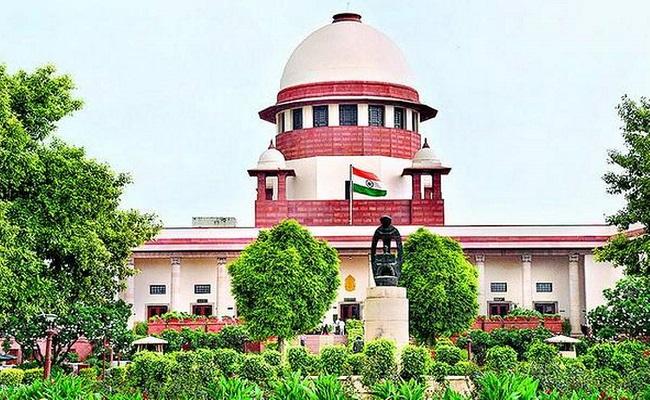Supreme Court Nod to 27pc OBC Quota in NEET

The Supreme Court stated that "reservation is not at odds with merit, but furthers the social good of equality."
The Supreme Court affirmed the constitutionality of a 27% quota for OBCs in All India Quota seats for admission to post-graduate and undergraduate medical programmes on Thursday.
New Delhi: The Supreme Court affirmed the constitutional legality of a 27% quota for OBCs in All India Quota seats for admission to government-run medical institutes for post-graduate and undergraduate medical programmes on Thursday. According to the report, "reservation is not at odds with merit," but rather promotes the common benefit of equality.
Justice D.Y. Chandrachud, who presided over a bench that included Justice A.S. Bopanna, ruled that "providing reservation in the AIQ seats is a policy decision of the government, which will be subject to the contours of judicial review similar to every reservation policy," rejecting petitioner's claim that the rules of the game were changed midway through the NEET PG for AIQ process.
Also Read: AP, Telangana Students Appearing for NEET UG Counselling 2021 Must Read This
"It thus cannot be argued that the rules of the game were set when the registration for the examination closed," the court said, referring to chapter II of the information bulletin issued for NEET PG AIQ seats, which specifically states that "reservation applicable to NEET-PG would be notified by the counselling authority before the beginning of the counselling process."
"High exam scores are not a proxy for merit," Justice Chandrachud argued on behalf of the panel. In such a context, "merit should be socially contextualised and reconceptualised as an instrument that advances social goods like equality that we as a society value. In such a context, reservation is not at odds with merit but furthers its distributive consequences."
"Merit cannot be reduced to narrow definitions of performance in an open competitive examination which only provides formal equality of opportunity," he continued. "Competitive examinations assess basic current competency to allocate educational resources but are not reflective of excellence, capabilities and potential of an individual which are also shaped by lived experiences, subsequent training and individual character."
The verdict states that "crucially, open competitive examinations do not reflect the social, economic and cultural advantage that accrues to certain classes and contributes to their success in such examinations."
Also Read: How to Make Your Video Resume Impressive to Get That Job
"Articles 15(4) and 15 (5) are not an exception to Article 15 (1), which itself sets out the concept of substantive equality," the court said in addressing the matter of constitutional imperatives "(including the recognition of existing inequalities). Thus, Articles 15 (4) and 15 (5) become a restatement of a particular facet of the rule of substantive equality that has been set out in Article 15 (1)."
The validity of the 27 per cent OBC reserve in AIQ seats in postgraduate and undergraduate medical courses was confirmed by the court, however, the validity of the methods for establishing the EWS quota will be heard in depth later this month.
The top court's detailed ruling explaining its reasoning for preserving the constitutional validity of OBC reservation in NEET AIQ seats came in response to its January 7 order allowing OBC/EWS reservation in NEET-PG AIQ seats.
A clutch of petitions was filed in the Supreme Court on July 29, 2021, opposing a notification that provided for a 27 per cent reservation for OBCs and a 10% reservation for Economically Weaker Sections (EWS) in AIQ seats in State government medical institutions.





